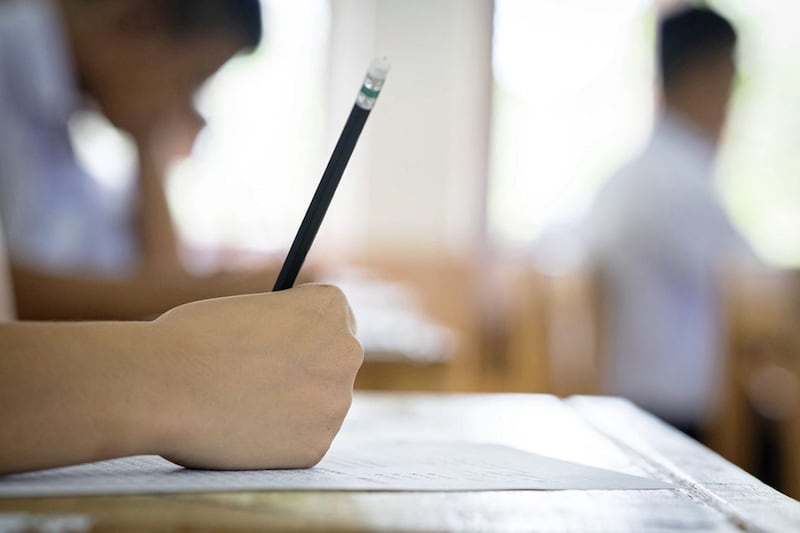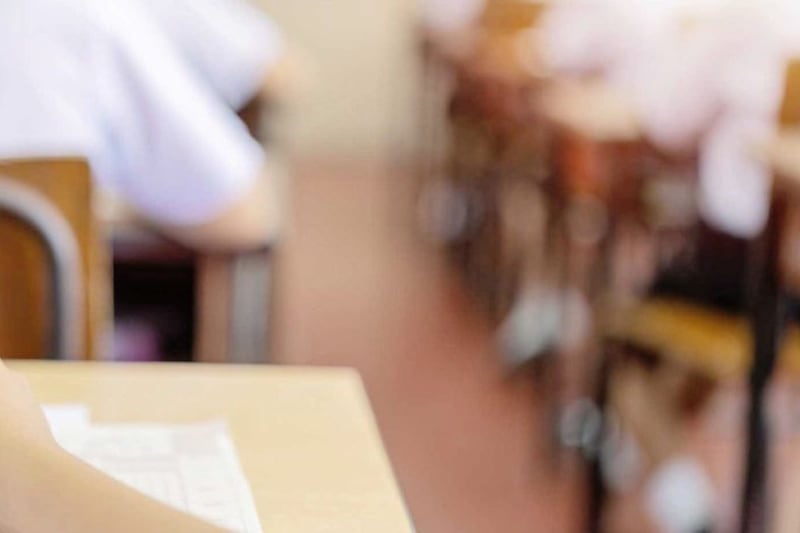LIFTING a ban on 11-plus coaching in schools has been criticised as 'regressive' and 'out of step'.
In a 180-degree policy shift from previous Sinn Fein ministers, the DUP's Peter Weir has told primary schools they can now prepare children for unregulated transfer tests.
New guidance says schools can supply support materials and carry out preparation during core teaching hours.
Teachers may also coach in exam technique.
This will be the eighth year that grammar schools have run their own entrance exams since the state-sponsored 11-plus was scrapped.
Up until now, primary schools have been warned against distorting the curriculum by facilitating unregulated tests "in any way".
However, Mr Weir said he has issued the new guidance to reflect "widespread public support" for the retention of academic selection.
"The guidance allows primary schools to respond to parental demand to prepare children for the transfer tests. Importantly, it removes any perceived threat to primary schools involved in supporting children through the process of transfer," he said.
Sinn Féin's Barry McElduff, chairman of the assembly education committee, claimed the minister was "clearly out of step with best educational practice".
"This is a disappointing and regressive move, which will split classes and deprive the majority of children of valuable time which should be spent learning the curriculum, devised by experts," he said.
Children's Commissioner Koulla Yiasouma also said she was deeply concerned.
"This decision will do very little to reduce the gap between richer and poorer students and it is not in the best interests of all our children," she said.
"Three times as many children from areas of social deprivation attend non-selective schools than attend grammar schools and less than half of these children achieved at least five GCSEs grades A*- C. We cannot justify a system which blatantly disadvantages a section of our community."
The INTO union said the minster appeared eager to turn back time.
"There are elements that the minister has highlighted including exam technique and preparation for the test which have no part whatsoever in the primary curriculum and yet he is encouraging schools to now suspend teaching schemes to incorporate these new elements into the teaching day," said northern secretary Gerry Murphy.
"Effectively this will lead to the narrowing of the primary curriculum in many schools. The skills based nature of the current curriculum is not reflected in these non-regulated tests, which are primarily a test of a pupil's knowledge of English and mathematics."
Avril Hall Callaghan of the Ulster Teachers' Union was also critical.
"After having at least made some advancement in modern thinking regarding education we are now lurching back into the dark ages with this attitude towards academic selection of children aged just 11 - often just 10. It is a retrograde step," she said.
Green Party assembly member Clare Bailey said the Executive was "playing political ping-pong with our children's education".
"This is not mature politics. Allowing tutoring in school for unofficial exams does not solve the problem, which is that we need to build an education system for modern times," she said.
::
ANALYSIS
Coaching for the 11-plus happens - both after school, and often during school on the sly.
That has been the case for the last eight years. This policy u-turn simply tells schools that `it's okay, officially'.
Peter Weir took the unusual decision to reveal details of this major shift in an article in one daily newspaper.
The minister claims there is widespread support for retaining selection. How he quantifies this is unclear.
When the last state-sponsored exam was held, almost 65 per cent of P7s sat it. It is difficult to gauge exactly how many take unregulated exams today.
While `entries' are increasing, there is a considerable number of children who sit both sets of exams offered by schools. Peter Weir estimates this to be 2,000. That means 13,000 pupils out of 22,000 - or 59 per cent - participate.
What is most unusual is that the current 11-plus-style tests are not part of the curriculum, so it is strange that the minister has given schools authority to deviate from it.
It could be argued that the content of the tests - maths and English - is part of the existing curriculum. The danger is that, faced with parents demanding they get their children through transfer, teachers might focus on the English and maths elements to the detriment of the rest - science, geography, history, digital skills, thinking and problem solving, and so forth.
Such an approach would undermine the delivery of a broad and balanced curriculum.








